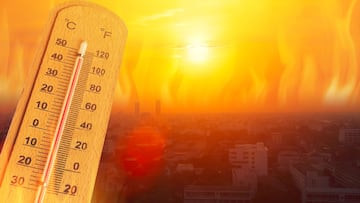Extreme heat alert on the east coast: affected areas and what temperatures will be reached
A vast swath of the US from the Mississippi to the East Coast is under an alert for an extreme heat wave. Here’s the affected areas and how hot it will get.

While Texas faces flooding, heavy rain and powerful winds from Tropical Storm Alberto, the Ohio Valley into the Northeast of the United States is under alert for an imminent extreme heat wave, as reported by the United States Weather Service (NWS).
Currently, more than 100 million residents, from the Midwest to the Northeast of the American Union, are under alert, with the possibility of facing new records of maximum temperatures. According to the NWS, this heat dome will produce record-breaking temperatures, especially in the Great Lakes, the Northeast coast and the Atlantic.
Due to high temperatures, several states, such as New York, have activated cooling centers. According to authorities, air conditioning is the best option to stay cool from the extreme heat outside.
You may also be interested in: A building catches fire in Soho, NY
Extreme heat alert on the east coast: affected areas and temperatures
The cities most affected by high temperatures will be Perkasie, Reading, Bethlehem, Chalfont, Collegeville, Easton, Jim Thorpe, Honey Brook, Pottstown, Stroudsburg and Allentown, in Pennsylvania; Flemington, and Morristown, New Jersey; Newton, in Massachusetts; and Washington.
Related stories
As for temperatures, most of the East Coast expects a high between 100 and 105º F this Thursday, June 20. Regions further south, from the Mid-Atlantic to the Ohio Valley and then the Southeast, will see more stable temperatures, although they will also be warm.
Here are the latest key messages for the Eastern U.S. heat wave through the end of the week and into the weekend. pic.twitter.com/EoOe5SONqJ
— NWS Weather Prediction Center (@NWSWPC) June 19, 2024
“High afternoon temperatures and warm overnight lows will challenge daily records and even some monthly and all-time records,” the NWS warned on Thursday morning.
Complete your personal details to comment